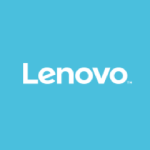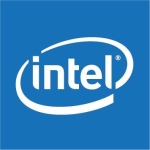With virtualization, you have a lot of freedom to manage the environment. We have a lot of requests coming in, a lot of machines to build, as well as some dev servers, test servers, et cetera. There is also the protection of all the systems. Compared to the cloud, if you have your own bare metal in your own office, that's cheap. That's one of the real advantages.
We can manage and configure all the storage systems ourselves. We have a lot more liberty there. When we add more things like storage servers, we can manage the backup. We are on the safer side since we have our own infrastructure and we have a good backup mechanism. It's more easy and more convenient for a system admin to manage these environments.
Poweredge has helped our organization. The model we're using is great. We had issues with an older model, however, this new one has been good. We have some production environments in our system. We shifted those to the new systems, and so far, I'm happy with the performance.
The power is cyber resilience is good. So far, with the security upgrades, it's quite good.
We have three or four servers and so far, it's going very well.
It's helped us reduce unplanned downtime. We have PowerEdge in collaboration with VMware. That's going well so far. We can utilize various features, like, B Motion, et cetera, to manage zero downtime.
Dell support is great, with us, at least. We have direct contact with Dell, so whenever we have a question, they are always there.
Everyone is great. They really care about their customers. They have offices in Pakistan, the Netherlands, and Germany. They really try to understand the Pakistani market.
We have more control and are saving money as compared to the cloud, which helps with long-term planning. The last Dell PowerEdge is in our local office. I've given our team the servers to do with them as they want.
I'd rate the solution nine out of ten.
I can't wait to learn more about their technology.
Foreign Language:(German)
Leicht zu verwalten und konfigurieren, mit einer guten Vor-Ort-Widerstandsfähigkeit.
Was ist unser Hauptanwendungsfall?
Wir verwenden die Lösung für unsere Virtualisierungsumgebungen. Wir verwenden eine VMware-Umgebung und einige Hypervisor-Umgebungen, und zu diesem Zweck setzen wir diese Lösung ein.
Inwiefern wurde meine Organisation dadurch unterstützt?
Mit der Virtualisierung hat man sehr viel Freiheit bei der Verwaltung der Umgebung. Es kommen viele Anfragen herein, viele Maschinen müssen gebaut werden, sowie einige Entwicklungsserver, Testserver und so weiter. Auch der Schutz aller Systeme ist wichtig. Im Vergleich zur Cloud ist ein eigenes Bare-Metal-System im eigenen Büro günstiger. Das ist wirklich ein großer Vorteil.
Was ist am wertvollsten?
Wir können alle Speichersysteme selbst verwalten und konfigurieren. Dadurch haben wir viel mehr Freiheiten. Wenn wir weitere Dinge wie Speicherserver hinzufügen, können wir die Datensicherung verwalten. Wir sind auf der sicheren Seite, da wir unsere eigene Infrastruktur haben und über einen guten Sicherungsmechanismus verfügen. Es ist einfacher und bequemer für einen Systemadministrator, diese Umgebungen zu verwalten.
Poweredge ist für unsere Organisation sehr hilfreich. Das Modell, das wir verwenden, ist großartig. Wir hatten Probleme mit einem älteren Modell, aber dieses neue Modell ist gut. Wir haben einige Produktionsumgebungen in unserem System. Diese haben wir auf die neuen Systeme umgestellt, und bisher bin ich mit der Leistung zufrieden.
Die Widerstandsfähigkeit gegenüber Cyberangriffen ist gut. Soweit, mit den Sicherheits-Upgrades, ist es ziemlich gut.
Wir haben drei oder vier Server, und bis jetzt läuft es sehr gut.
Es hat uns geholfen, ungeplante Ausfallzeiten zu reduzieren. Wir verwenden PowerEdge in Zusammenarbeit mit VMware. Das klappt bisher sehr gut. Wir können verschiedene Funktionen wie zum Beispiel B Motion usw. nutzen, um Ausfallzeiten zu vermeiden.
Was muss verbessert werden?
Ich müsste das Produkt genauer erforschen. Vielleicht braucht es ein bisschen mehr Support. Wir haben einen Speicherplatz und würden gerne mehr Backups ohne zusätzliche Speichergeräte verwalten. Vielleicht gibt es das schon. Ich muss mehr darüber nachforschen. Einige Hypervisoren scheinen keinen zusätzlichen Speicherplatz zu haben. Vielleicht gibt es sie aber auch schon, und ich habe sie nur noch nicht gefunden.
Wie lange verwende ich die Lösung schon?
Ich verwende die Lösung seit fast zwei Jahren.
Was halte ich von der Stabilität der Lösung?
Es ist großartig. Bis jetzt läuft es stabil. Ich habe keine Probleme mit der Stabilität, so würde ich definitiv sagen, es ist gut.
Was halte ich von der Skalierbarkeit der Lösung?
Aus Sicht der Skalierbarkeit verwenden wir die Server im Clustermodus. Bis jetzt läuft das sehr gut. Wir können unsere Workloads migrieren und alles tun, was wir tun wollen, einschließlich Updates, und das ohne Ausfallzeiten.
Wie funktioniert der Kundendienst und der Support?
Der Support von Dell ist großartig, zumindest bei uns. Wir haben direkten Kontakt mit Dell, und wenn wir eine Frage haben, sind sie immer da.
Alle sind großartig. Sie kümmern sich wirklich um ihre Kunden. Sie haben Büros in Pakistan, den Niederlanden und Deutschland. Sie versuchen wirklich, den pakistanischen Markt zu verstehen.
Wie bewerten Sie den Kundendienst und den Support?
Positiv
Welche Lösung habe ich zuvor verwendet und warum habe ich gewechselt?
Wir haben vorher keinen anderen Server verwendet. Ich habe immer Dell verwendet.
Wie hoch war der ROI?
Wir haben die Ausfallzeiten reduziert. Die Kosten spielen ebenfalls eine große Rolle. Wenn Sie gute Server vor Ort mit Stromunterstützung haben, können Sie im Vergleich zur Cloud erheblich Geld sparen.
Welche Erfahrungen habe ich mit den Preisen, den Einrichtungskosten und der Lizenzierung gemacht?
Wir haben eine Kundenbeziehung zu Dell. Wir haben einen guten Kundenbetreuer, der uns bei der Preisgestaltung helfen kann.
Welche anderen Lösungen habe ich geprüft?
Vor drei oder vier Monaten haben wir einen neuen Dell PowerEdge bestellt. Ich kann mich nicht daran erinnern, andere Lösungen geprüft zu haben.
Was kann ich sonst noch raten?
Wir haben mehr Kontrolle und sparen im Vergleich zur Cloud Geld, was uns bei der langfristigen Planung hilft. Der letzte Dell PowerEdge steht in unserem lokalen Büro. Ich habe unserem Team die Server zur Verfügung gestellt, so dass sie damit machen können, was sie wollen.
Ich würde die Lösung mit neun von zehn Punkten bewerten.
Ich kann es kaum erwarten, mehr über ihre Technologie zu erfahren.













